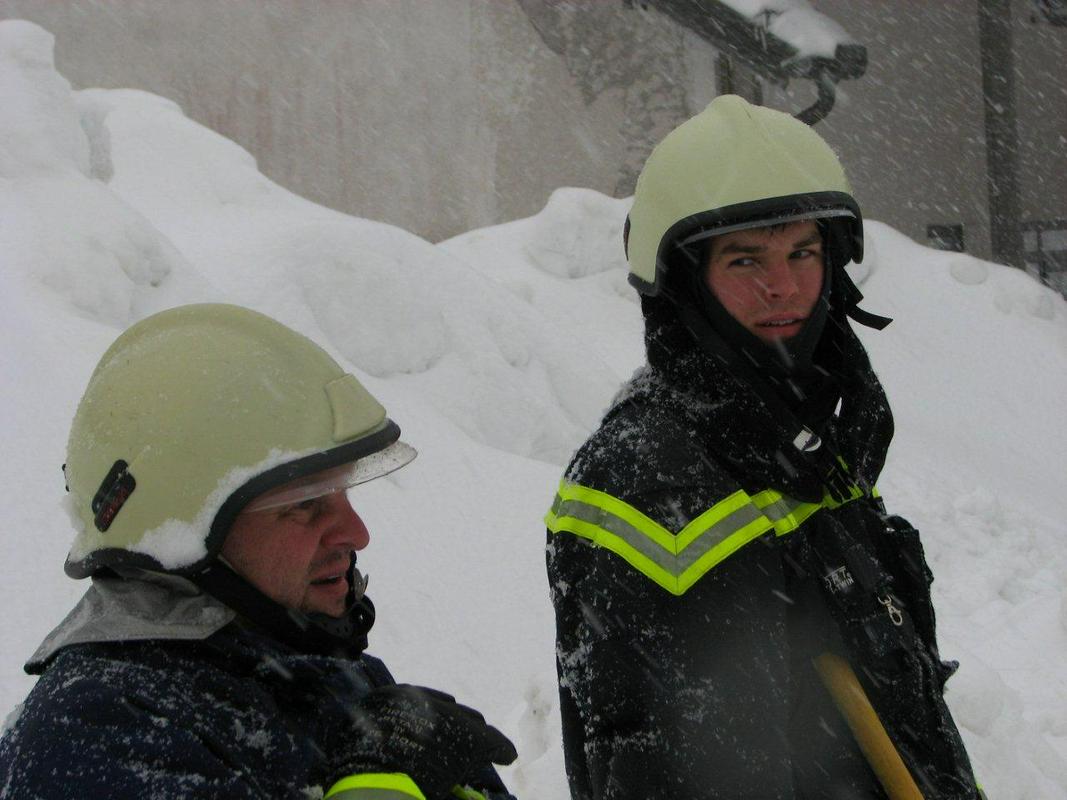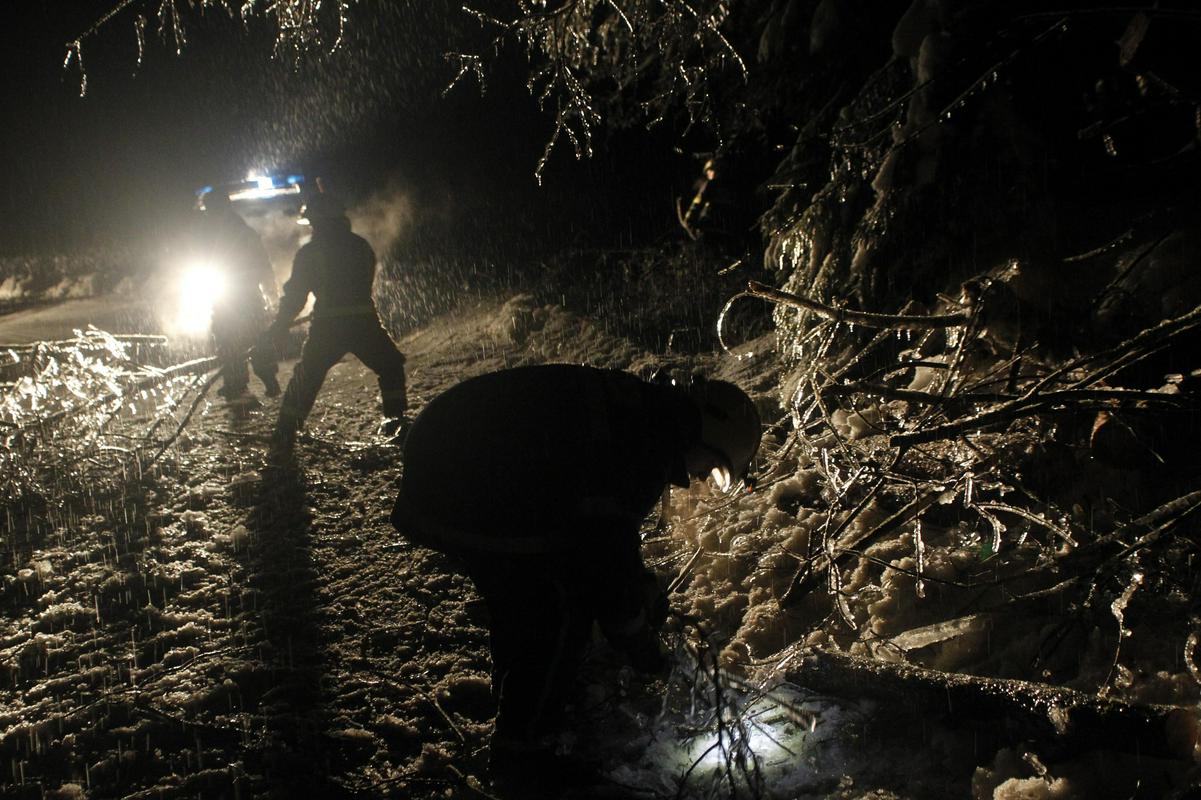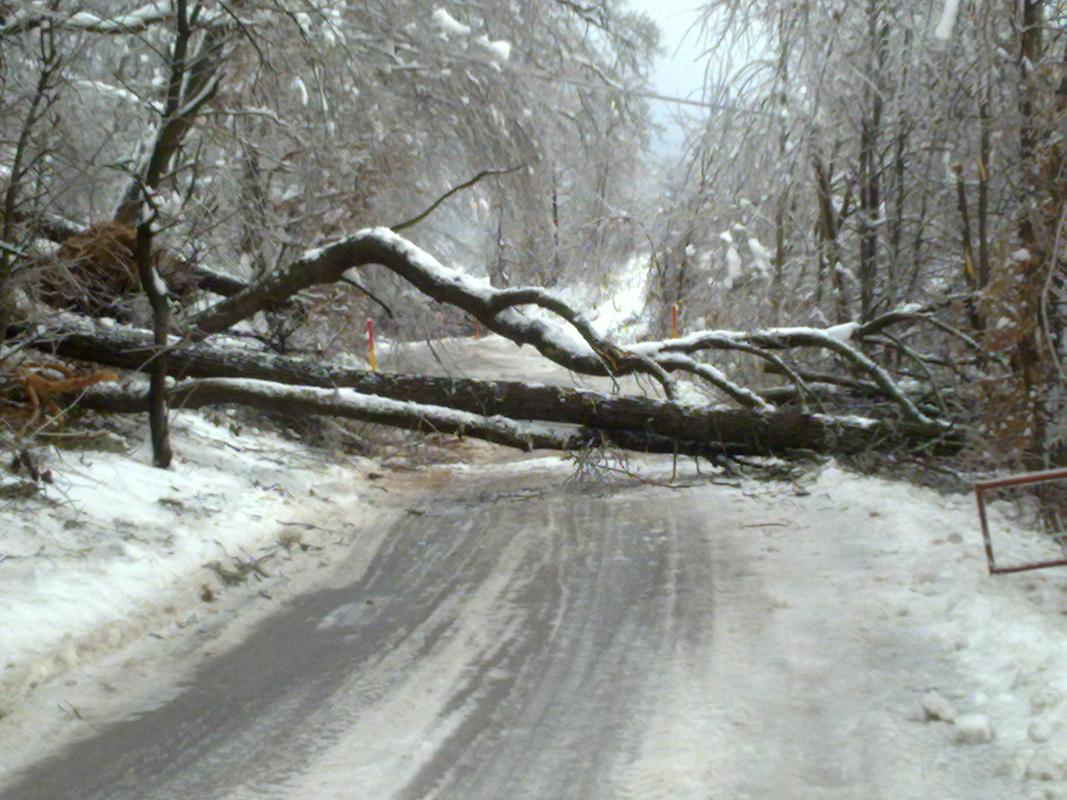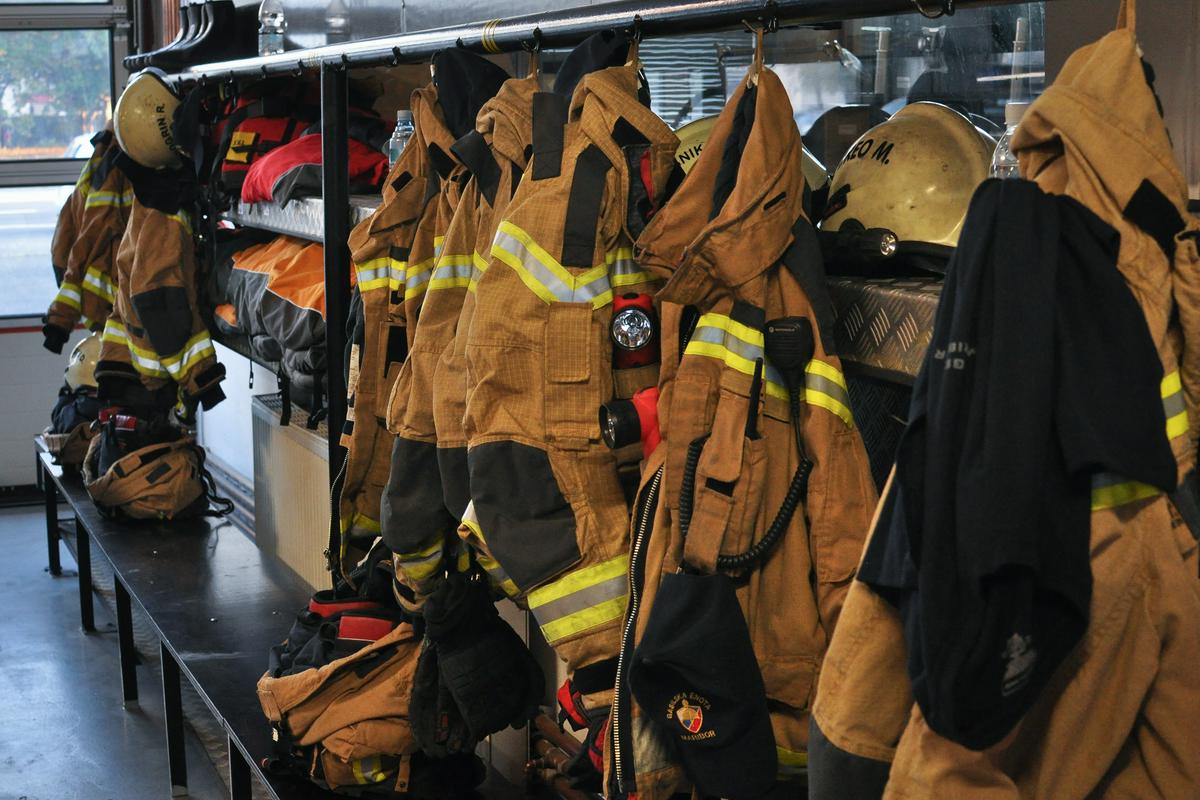



Firefighters are qualified enough for the dangerous work which needs to be done after such natural catastrophe, the only problem is the equipment, explains the commander of the volunteer firefighters.
During the catastrophic days around 25,000 volunteer firefighters have been working in the field, and now they are coming to the most affected areas from the less endangered parts of the country. The commander of the Fire Fighting Association of Slovenia Franci Petek during his conversation with MMC explained that they were able to come from other parts of Slovenia only on Wednesday, after the activation of the state plan.
From now on the expenses which are occurring (e.g. reimbursement of expenses for employed volunteers to their employers, expenses for fuel, and other expenses) will be paid by the state. Before the activation of the state plan the burden to cover the expenses rested on the local communities and fire departments, which however don't have the reserves for such cases, and will have to provide them from their budgets for regular activities.
During the recent catastrophe firefighters have been performing an extremely dangerous work, but Petek promises that they are adequately trained. The only problem is the expensive protective gear which fire departments can't afford in the sufficient quantity, as the present conditions demand.
In spite of all the problems the volunteer firefighters have been working unselfishly – and it hasn’t gone unnoticed by the people to whom they had offered help. "The response was remarkable in all the aspects," says Petek, and adds that firefighters receive praise in abundance.
You can read more about the work of the volunteer firefighters during the national disaster in the following interview.
Let’s start with the number of the firefighters working in the field these days.
Not all the firefighters are in the field simultaneously. They rotate, come for one day, stay away the next day, and so on. All together 25,000 firefighters have participated. In this number only our members, volunteer firefighters, are included. The teams change as well, so that there is only a limited number of those who stayed in the field for four, five days in a row.
What kind of practical problems are they facing? Food, for example – how is that organized in the field?
In different ways, depending on the local communities. I have to thank the members of the Slovenian army, who took care of that especially in the Postojna region – they cook in their barracks and then distribute food. But as the local community is supposed to take care of such things, the arrangements differ very much. As the state plan was activated yesterday, the state should take over that as well, but for now all the logistic conditions are still provided by the local community. Only in the Postojna region, as already mentioned, the army is taking care of that.
How do people in the field respond? I assume they are very grateful to the firefighters for their unselfish help?
I must say the response is outstanding, in all the aspects. Everybody is praising our firefighters, and have only words of approval for them. The public as well, and almost all the media. When a number for SMS messages was introduced, in cooperation with Telekom, at first there was no response, and we haven't especially advertised it. And now, when it is being mentioned in the media and on the web, the response is outstanding.
Removal of fallen and bent trees and branches can be very dangerous, even for skilled woodcutters. Are the volunteer firefighters trained enough for such a dangerous work?
I can't say we have professional woodcutters. But our programme carried out by the Slovenia Forest Service and the Forestry School includes also training of use of chain saws. The training lasts two days, and gives our firefighters the basic skill. But a lot of firefighters have forests at home, and can well use the acquired skill in their home environment. So, the training gives them the basic skill, but in the end, what counts is the experience. Our firefighters are not professional woodcutters, but they have the basic skill to do the necessary work in such conditions. They know the job, they know how to be careful and pay attention to the dangers which can occur in such conditions.
What about the equipment? Especially the smaller fire departments probably don't even have enough chain saws for such occasions? How do you manage? Do you borrow the equipment?
Lately the situation has largely improved; there is hardly any fire department left without at least one chain saw in their possession. It became a must, considering the natural disasters which are occurring lately our fire departments had to add them to their equipment. The training of the firefighters goes in that direction as well. The suitable protective clothing which protects from cuts is also being bought. But we don't have a lot of such equipment. We don’t have the equipment for 10 or 15 people – we can outfit one, perhaps two or three firefighters. It depends, perhaps some fire departments have more trained firefighters for such jobs, but then on the other side we don't have enough protective clothing for 10 or 15 firefighters – especially the special ones, suitable for work with a chain saw.
The problem with the catastrophe of such scale, especially where small fire departments are concerned, are also the expenses – even only for the fuel consumed. How long does it usually take for a fire department to have the expenses reimbursed?
In the past it used to take some time. For example, we still haven't been reimbursed for the expenses occurred during extinguishing of the forest fire at Trstelj (August 2013, authors note). The government indeed had a lot of financial problems, so we firefighters remained patient. Hopefully it will be different this time, and the state will take this into account at the damage estimation. We hope Europe will help, and that our expenses will be reimbursed sooner.
It is too early for an estimation of expenses, but still – do you already have an idea of the expenses?
We have already spent a lot on fuel. Therefore we believe the expenses will come close to a million Euros – at least considering the number of vehicles and machines in the field. The vehicles, the chain saws are working without breaks. The cost of reimbursement of expenses will be very high as well. If only 10% of the mentioned number of firefighters, i.e. 25,000, is taken into consideration for calculations, or even less, we get a very high amount. But on the other hand, these expenses are then divided between individual fire departments, associations, regions.

































































